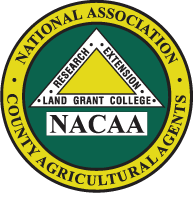BEEF CATTLE REPRODUCTIVE MANAGEMENT SCHOOL
Proposed by: Sharon Fox Gamble
Presenters: WALTER, J. H., Extension Agent II, Brevard County Extension, University of Florida, Cocoa, FL 32926
Brew, M., Extension Agent I, Lake County Extension, University of Florida, Tavares, FL 32778
Gamble, S.F., Extension Agent IV, Volusia County Extension, University of Florida, DeLand, FL 32724
Jennings, E.W., Extension Agent, IV, Pasco County Extension, University of Florida, Dade City, FL 33513
Mudge, D.M., Extension Agent III, Orange County Extension, University of Florida, Orlando, FL 32812
Shuffit, J.M., Extension Agent IV, Marion County Extension, University of Florida, Ocala, FL 34470
Warren, M.W., Extension Agent II, Flagler County Extension, University of Florida, Bunnell, FL 33110
Reproductive management of beef cattle is critical to the success of cattle operations in Florida. To enhance knowledge of and therefore increase reproductive efficiency, a Beef Cattle Reproductive Management School has been conducted in excess of fifteen years with an artificial insemination certificate added the last two years. This five-day intensive school combines didactic and clinical experiences to thirty students annually with combined attendance of more than four hundred students. Because the school is a partnership between Deseret Cattle Ranches of Florida providing facilities and 500 head of cattle annually and instruction provided by Extension Agents, UF professors, graduate students, American Breeders Service and local veterinarian costs have been kept to three hundred dollars per student for a five day school. The school provides intensive instruction with professors and students in group and one-on-one settings. The school, open to advanced mature high school, college students and cattlemen has had participants from Florida, surrounding states, as well as other countries. Knowledge gained has included: shortening breeding seasons of three-hundred and sixty-five days to ninety to one hundred and twenty days by the majority of attendees, participants purchase higher quality bulls instead of raising their own and have increased their selection pressure within herds using pregnancy determination and replacement heifer selection. Younger students have become large animal veterinarians, obtained degrees in Animal Sciences, and have taken knowledge back to their farms. Participants that historically did not attend Extension Events now attend other Extension programs to obtain additional knowledge.
